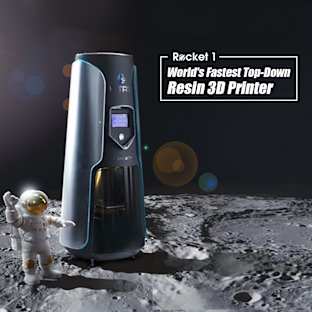THE DREAM:
We think it's time to rethink development in Palestinian refugee communities, and that means green, sustainable, and grassroots solutions.
Refutrees has developed 3 innovative projects, and our dream is to raise $30,000 for the development of each of them as the first step towards a sustainable and green future for displaced communities.
THE SEEDS: Our Story
Refutrees was born after years of research conducted by founder Lamya Hussain in Palestinian refugee camps across the West Bank and Lebanon. Through her work, Lamya was able to identify the failure of current development and aid programs to end donor-reliance. Further, Lamya’s research identified the gaps in building local livelihoods for Palestinian refugees in the long-term.
In an effort to address these issues of unemployment, lack of land and food sovereignty, and deteriorating community health, Refutrees was created in order to integrate green innovation with the development of projects fundamentally based on the needs of local communities in collaboration with local resources. With a small dedicated team made up of Lamya, Pauline, Theo, Shatha, and Bridie (read more about us below!), a wealth of research, and endless amount of hope, Refutrees is now ready to grow its seeds!
THE SPROUTS: Our Plan
We have 3 interconnected, extensively researched pilot projects (detailed below): the Rooftop Garden Project, the Agro-Knowledge Exchange, and Eco-Art Palestine.
Each project responds to the needs of Palestinian refugees by developing local capacities in the long-term by incorporating community aspirations and principles. Our ideas are eco-friendly, sustainable and replicable, and rooted in helping Palestinian communities achieve their socio-economic and human rights.
![close up image of olive branch]()
THE WATER AND SUN: Your Help
Our pilot projects each require $10,000 from start to finish, for a total of $30,000. Our budget is made up of:
- Cost of materials
- Consultancy charges,
- Travel, administrative and legal costs.
Any left over funds, if any, will be used to produce locally made merchandise such as t-shirts and tote bags, as a means of continuing our fundraising efforts after this campaign is over.
We have planned our funding campaign in such a way that allows our three projects to help each other through a growing network and wellspring of resources. This allows us also to move forward even if we (heaven forbid!) don’t reach our $30,000 goal – all the money raised will go directly to starting up the projects as well as help us explore other fundraising avenues.
![Image by Anne Paq/Active Stills Image of man and little boy planting a tree]()
THE FRUITS: What YOU Get
We want you to feel all the love that's going into these projects. To thank you for your support, we have an amazing set of thank you gifts -- "perks" for your generosity! Here are some of the highlights from our friends!
- Our friend Dr. Naif Mutawa has donated 200 limited edition issues of "The 99" comic book series. Check out his TedTalk here: http://bit.ly/bneH5B
- A recipe guide for a 3-course Palestinian meal, from the kitchen of Refutrees' Mama Hania!
- One of two signed prints by Josh MacPhee of JustSeeds Artists' Cooperative! Have a look HERE and HERE OR a copy of the JustSeeds Political Art Book "Signal" preview HERE
- One of two ORIGINAL ARTWORKS by esteemed artist Muiz: 1) 'Gaza Zaytoun' see HERE or 2) 'Palestine', see HERE
Each piece is 12x16 in, mounted plyboard. Both prints were featured in Muiz's London exhibition, Nuclear Nuqta, which opened the 2012 Nour Festival of Arts at Leighton House Museum in Kensington - covered by the Huffington Post, BBC, and The National, among others
And MANY MORE! Read them all on the side PERKS panel on this page.
![]()
THE ROOTS: The Background
Displaced for over four decades, Palestinian refugees remain in a state of ‘temporary’ with limited access to resources, restricted mobility, and uncountable barriers to livelihood. While Palestinians have continued to find innovative ways to maintain their communities and spirit, the daily struggles around health, environment and livelihood have been key motivations in establishing Refutrees. Living conditions are poor and include: poor diet and nutrition, access to clean drinking water, sanitation and sewage, garbage disposal and poor overall environment, security and safe spaces for children, and so on. Existing local capabilities continue to be exhausted, and Palestinians remain skeptical of the donor programs that have thus far failed to resolve the roots of their current circumstances. Nonetheless, Palestinians remain resilient and continue to identify with innovative solutions towards the gaps in development in their communities -- amongst which are green solutions with a sustainable future.
In creating projects that are reflective of the needs of the community in a manner that is creative, eco-friendly and premised on the dissemination of knowledge and resource building, Refutrees is hoping to work collobaratively with local communities to create grassroots change.
The Pilot Projects:
![]()
1. The Rooftop Garden Project
PROBLEM = Donor reliance, deteriorating health, and lack of food sovereignty. Palestinian refugees, as the longest standing refugee community in the world, continue to be reliant on international humanitarian assistance programs in such a way that restricts their independent development.
SOLUTION = Rooftop gardens that provide Palestinians the capacity to grown their own organic food in dense and restrictive spaces. The rooftop garden addresses the lowering health status of Palestinian refugees by getting to the root of the problem: access to good food. More importantly, it is both sustainable and reflective of Palestinian socio-economic and political rights. Furthermore, it is an investment into the continually deteriorating environment of the camps given poor infrastructure, lack of permits for repairs, and vulnerability to systematic violence.
Most of the refugees we will work with were previously landowners and farmers, which gives the project an even more important dimension. In aiming to adapt to their current context while also reviving farming concepts in the urban context, Refutrees will engage second and third generation refugees with the roof-top garden project by providing training and assistance.
2. Agro-Knowledge Exchange
PROBLEM = Even under highly restrictive circumstances, Palestinian communities are truly innovative and creative. However, lack of resources and other structural barriers to education and enterprise stand in the way of the long term development of community innovation and capacity building.
SOLUTION = Refutrees is rooted in the principles of resource-sharing and the exchange of knowledge, and all our projects are developed with the intention of being replicable and sustainable. The Agro-Knowledge Exchange program is one such way to do this, as it aims to connect Palestinian refugees with scholarship opportunities abroad to explore agricultural, environmental and social enterprise studies and programs. In collaboration with Palestinian communities, Refutrees will carefully select enthusiastic individuals that are community leaders and innovative thinkers that will ensure the continuity of projects such as the rooftop gardens.
We are working with potential universities that might be interested in sponsoring Palestinian refugees in short and long-term scholarship programs. Given the unique context of Palestinian refugees it is important to invest in the training and development of such capacities to improve current and future living conditions.
3. Eco-Art Palestine
PROBLEM = Palestinian children, particularly refugees, are the most vulnerable to systematic violence and arbitrary detention under their circumstances. Lack of safe playing spaces means that Palestinian children are consistently denied of not only special protection, but their basic right to play, in accordance with Convention on the Rights of the Child.
SOLUTION = An eco-art playground made of recycled materials. In partnership with Ugandan eco-artist Ruganzu Bruno Tusingwire, he project addresses the issue of limited access for children to play. In designing a playground that is eco-friendly and utilizes recycled material, Refutrees is consistent in its approach to intertwine art-creativity-environmental awareness. This space will be unique, replicable for future projects, and will have a real impact on the community. Also, in a truly sustainable fashion, we will work with local artists and hold workshops to build capacity for future projects.
Tusinwire's project will be based on his design of a community amusement park made of recycled materials in Uganda, which won him the 2012 TEDxSummit Award.
Meet the Dream Team:
![Sketch of the Refutrees team]()
Founder and CEO: Lamya Hussain
Lamya is currently a PhD Candidate at SOAS with the Department of Development Studies. She holds a Masters in Environmental Studies and a Graduate Diploma in Refugee Studies. Lamya is currently developing original research that explores agriculture across the West Bank in working with Palestinian farmers. Previously, Lamya has dedicated several years researching Palestinian refugee communities across Lebanon and the West Bank. Her efforts have awarded her twice the Harold Mahabir Award for International Development.
Communications and Outreach: Shatha Al-Husseini
Shatha is a recent graduate of the University of Toronto, majoring in
Political Science and Middle Eastern Studies. Her research interests
include Palestinian diasporic culture, Middle Eastern art, and
Transnational Social Movements. She is passionate about working in the
intersectional spaces of community, art, and grassroots innovation .



































































